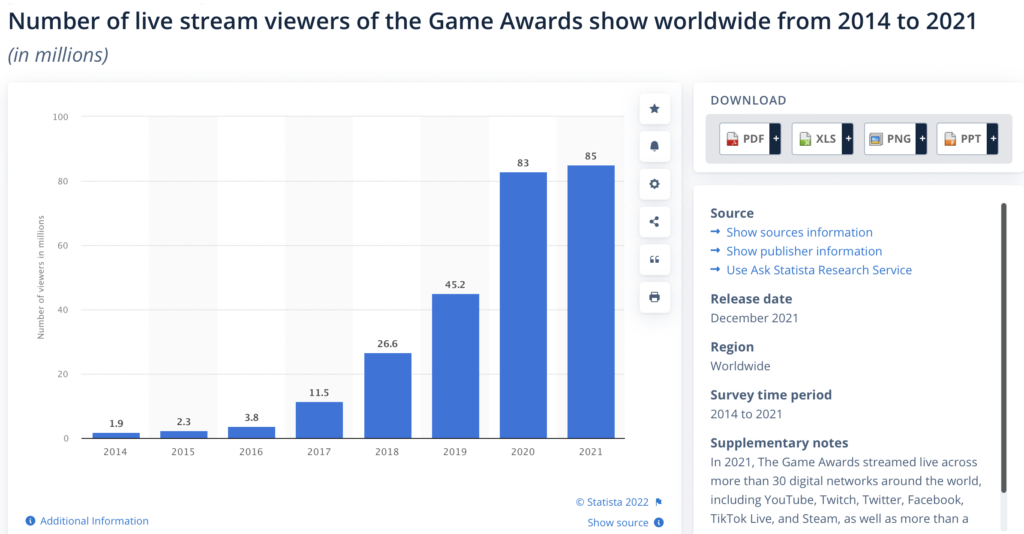Within the past decade, the gaming industry and its media outlets have been making more and more efforts to honor the achievements within the Video Game medium each year. Similar to The Oscars for filmmaking or the Grammys for music, the Game Awards acts as the gaming industry’s primary ceremony to celebrate video games and acknowledge the people behind them since its inception in 2014. It’s a rather new development compared to other industries’ multiple decade long traditions, but it was a humble start, and a successful modern attempt to garner a large audience.
The ceremony’s producer and annual host, Geoff Keighley, previously helmed a separate ceremony in the form of the Spike Video Game Awards (VGAs) for ten years. Disappointed in its last show, which was criticized for being advertiser heavy and its involvement of celebrities notorious for work outside of video games, Keighley sought to change things up and continue to celebrate this rapidly expanding industry through The Game Awards.

This year’s nominees were announced this past Monday, and conversations are already stirring surrounding them as expected.

With gaming being a pricy hobby, I’m personally unable to play all of them, but I am pleased to say that one of the few games I decided to purchase this year is nominated for game of the year, and while the other titles might no doubt be as great, I don’t think anything in gaming has done more to reach and expand their audience more in a significant way than Elden Ring (2022).
I’m looking forward to playing more of the acknowledged games in later years when I can afford them at a lower but admissible price, but for now the consensus seems to point at Elden Ring being the top player this year, even with God of War Ragnarok‘s (2022) release and appraisal.